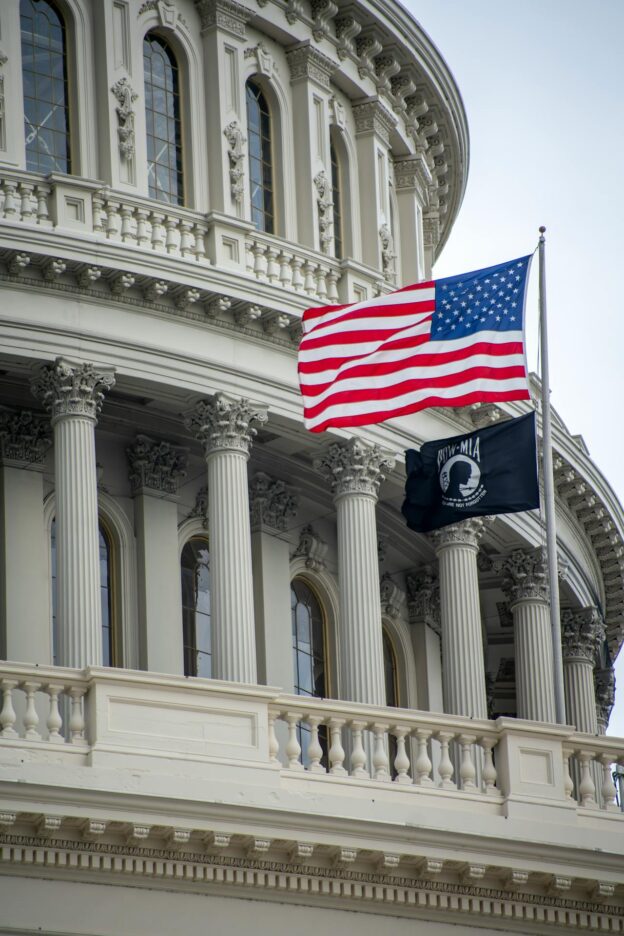GK’s James Allan assesses some of the barriers of populism in British politics and explains why the political hype about Reform UK might be overstated
‘Campaigning is different than governing’ – so said President Obama to reporters on Air Force One in a targeted message to Republicans looking to gridlock his legislative agenda on Capitol Hill. The same goes for any political organisation that looks to exploit grievances and stir up public anger to secure votes and electoral support. It was a dynamic at play in the 2016 Brexit referendum and Reform UK is reviving the grievance playbook in the lead up to the next election.
How the Labour government, and the Conservative Party in opposition, respond and deal with the challenge posed by Reform UK is undoubtedly shaping the course of this parliament. The government published its immigration white paper only moments after the local election result and the so-called ‘Reform-quake’ that saw 677 Reform councillors elected. As noted in last month’s newsletter, the government’s political objectives were clear: to appear tough on immigration, shatter the public perception of Labour being pro-asylum and pro-migration, and outflank Kemi Badenoch and Nigel Farage.
With all the subsequent political and media crystal ball gazing about the future of Reform UK, it is unsurprising that investors and businesses are curious. Importantly, the next election is likely to take place in the second half of 2028 or at some point in 2029. It is too early to predict the outcome meaning current polling warrants cautious interpretation. Amid the uncertainty, it is worth stepping back to consider why the political hype about Reform UK may be premature.
Four reasons why the Reform panic is overblown
1. The UK is bucking the global populist trend
The year 2024 was mega for elections across the globe. It was a year that largely saw incumbents punished for achieving marginal levels of economic growth, governing during a global health pandemic, and a cost-of-living crisis. This created opportunities for the ring-wing populist parties that sought to challenge to status quo, capitalise on grievances and promise radical change without providing credible plans for doing so. However, unlike most swings experienced in other western developed democracies, the UK swung to the left. The election of a Labour government brought an end to 14 years of Conservative governments.
The UK’s anti-incumbent sentiment at the election meant that one in four Conservative voters in 2019 went to Reform UK and one in five went to the Labour Party. This indicates a more fragmented split in the national vote and the UK’s first past the post electoral system means that Labour’s majority should be understood as broad but thin. It reflects a characteristic of our electoral and constitutional DNA that makes it harder for third, fourth and fifth political parties to perform well and win seats at general elections, including a right-wing populist challenger party. The bar is therefore high for Reform UK. It would need to overcome this fragmentation and more comprehensively supplant the Conservative Party to succeed.
2. No party has ever lost a 174-seat majority in modern British political history
Starmer’s majority is the third largest landslide win since the turn of the 20th century. From 1945 onwards, history would suggest that majorities such as this typically endure at least one more election before the colour of government changes. Labour’s majority of 145 in 1945 survived one other election before being unseated and its majority of 179 seats in 1997 endured for two more elections. The Conservative majority of 144 in 1983 also endured for two more elections and was whittled down to a majority of 21 before the party was catapulted out of power.
Historical precedents should be taken with a pinch of salt. The third-party challenger in all these elections were typically the Liberal Democrats (or its predecessors). A more fragmented electorate and Reform UK could challenge this historical precedent but even its predecessor UKIP never won any seats in the House of Commons at its peak in 2015 despite holding a number of seats in the European Parliament elected under a proportional representative system. This further underscores the difficulty these challenger parties face.
3. Grievance politics only gets you so far
Reform UK’s playbook of grievances is blunt and polarising: immigration and borders; issues of national identity and community cohesion; taking on establishment orthodoxy and perceived elite indifference; and underscoring the cost of net zero policies. Playing on grievances can mobilise discontent, and without credible solutions, Reform UK will struggle to translate its momentum into enduring political support.
The coming years will be a test of Reform UK’s operational effectiveness, party discipline and credibility in local government. Its success at the May local elections is significant. It won 677 council seats out of roughly 1,600, took control of ten local authorities and successfully elected two mayors. But beyond the grievances espoused by its candidates, Reform UK’s credibility is now at stake and already showing early signs of dysfunction. For instance, Reform UK-controlled Kent County Council recently suspended a councillor and nine of the 22 council meetings have been cancelled within the first nine weeks of them gaining control. These are meetings where important decisions, such as budget allocations and service provisions were expected to be made.
Local government plays a vital role in the operational delivery of frontline local public services that most of the electorate use and engage with. From adult social care and children’s services, to bin collection and public protection, a lot is at stake for Reform controlled local authorities. Political leaders in Westminster will be watching closely to exploit any opportunity to batter Reform’s credibility. Added to this is immense pressure on local government finances, meaning that any misstep will be amplified. Reform UK not only has to prove it can win votes but also that it can govern responsibly under intense scrutiny and fiscal constraint.
4. Expect mid-term blues
It is reasonable for voters to flirt with protest parties between general elections and Reform UK is likely to maintain its momentum in local elections over the course of this parliament. Local elections offer a safe outlet for public frustration, but general elections are different. Not only will voters who are less politically engaged (or enraged) turn out to vote in a general election, but the national conversation will shift from registering voter discontent to who can govern the country effectively. It was a dynamic in 2024 and a key part of Starmer’s pitch to voters, citing his record of restoring Labour’s credibility from the Corbyn era of Labour leadership and criticising the Conservative’s mismanagement of the economy.
While Reform UK may have reshaped the political conversation, structural barriers and historical precedents mean that translating this discontent into enduring electoral support that can survive the test of a general election will be a significant challenge for the populist right-wing party.






